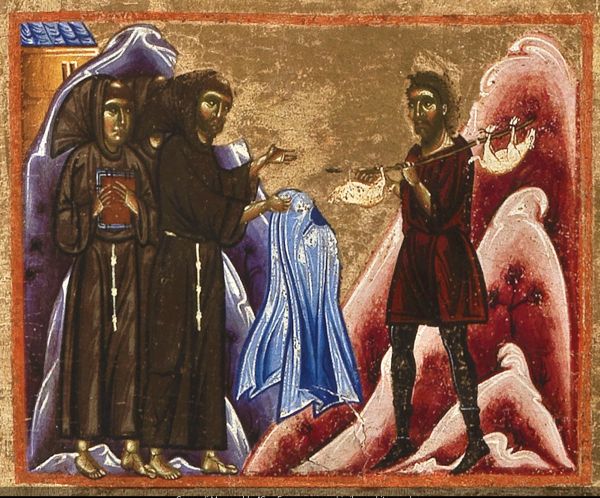"Behold the Lamb of God, the one who takes away the sin of the world".
Francis, the Minim, loved all animals, but he had a particular fondness for the lamb, because it reminded him of the Lamb of God sacrificed for our Redemption.
The mere thought of the Son of God sent to the slaughter moved him deeply, even to tears.
The Sources, an inexhaustible treasure chest of early life, offer us very significant pictures in this regard.
"He had a special tenderness for lambs, because in Scripture Jesus Christ is often and rightly compared to the meek lamb because of his humility.
For the same reason, his love and sympathy turned in a special way to all those things that could best depict or reflect the image of the Son of God" (FF 455).
"Another day, on a pilgrimage through the same March, with the same Brother Paul, who was very happy to accompany him, they came across a man who was bringing to market two lambs to sell, tied, bleating and dangling from his shoulders.
On hearing those bleats, the servant of God, greatly moved, approached them, stroking them, as a mother does with her crying children, with much compassion, and said to the master:
"Why do you torment my brother lambs, keeping them so tied and dangling?"
He answered: "I am taking them to the market and selling them: I need money". And Francis: "What will become of them?" And they: "The buyers will kill them and eat them".
On hearing this the Saint exclaimed: "Never let it be! Take my cloak as recompense and give me the lambs".
The man was well pleased with such a barter, for the cloak, which Francis had received on loan from a man that very day to shelter him from the cold, was worth much more than the two beasts.
But having received the lambs, the saint again realised the awkward problem: "How to provide for them?" and, on the advice of Brother Paul, he returned them to their master, advising him not to sell them, not to harm them in any way, but to keep and guard them with care" (FF 457).
Proper Feria of 3 January (Jn 1:29-34)












